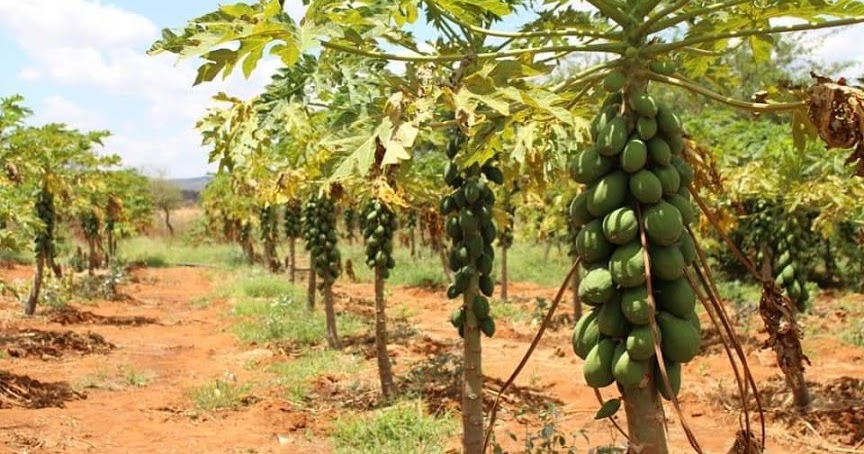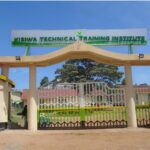Agriculture plays a pivotal role in Kenya’s economy, providing livelihoods for millions and contributing substantially to the nation’s GDP. As the agricultural landscape becomes increasingly sophisticated, the need for skilled professionals who can manage and innovate within the sector has grown. A Diploma in General Agriculture equips students with the expertise to navigate and enhance this essential industry.
What is a Diploma in General Agriculture?
A Diploma in General Agriculture is an academic program aimed at imparting comprehensive knowledge and practical skills in agriculture. The curriculum covers a wide range of topics, including crop science, animal production, soil management, agricultural economics, and farm operations. This holistic approach ensures that graduates are capable of overseeing various facets of agricultural enterprises, from cultivation to marketing.
Goals of the Diploma in General Agriculture Program
By the end of the course, students will have achieved several critical objectives:
- Skill Acquisition: Gain hands-on experience in managing agricultural businesses, focusing on production, processing, and distribution.
- Sustainability Practices: Learn to use natural resources responsibly, promoting sustainable agricultural practices.
- Communication and Outreach: Develop skills to effectively share agricultural knowledge and innovations with farmers and other stakeholders.
- Enterprise Management: Apply management principles to optimize farm productivity and ensure sustainable agricultural practices.
Eligibility Criteria for Enrollment
Prospective students must meet the following criteria to enroll in the Diploma in General Agriculture program:
- KCSE Minimum Grade: Applicants should have attained a minimum grade of C- (C minus) in the Kenya Certificate of Secondary Education (KCSE).
- Science Background: While the general requirement is a C-, having a solid foundation in subjects like Biology, Chemistry, and Agriculture is beneficial.
- Alternative Entry: Candidates who hold a Craft Certificate in General Agriculture or a related discipline can also qualify for the diploma. Depending on their prior education, they may be exempt from certain modules, starting at an advanced level such as Module II.
Course Breakdown and Modules
The diploma course is structured into three modules, with each module representing a year of study. Each module builds on the last, ensuring a comprehensive educational journey.
Module I: Basics of Agricultural Science
- Communication Skills: Focuses on enhancing students’ abilities to communicate effectively within agricultural contexts.
- Entrepreneurship I: Introduces basic entrepreneurial concepts relevant to agriculture.
- Mathematics I: Covers essential mathematical principles applicable to agricultural practices.
- Science I: Provides a foundational understanding of the scientific principles underpinning agriculture.
- Technical Drawing: Teaches basic technical drawing skills useful in agricultural engineering.
- Principles of Crop Production I: Introduces fundamental crop production techniques.
- Soil Science I: Explores the basics of soil properties and their management.
- Animal Production I: Covers the essentials of animal husbandry.
- Agricultural Economics I: Introduces economic principles relevant to the agricultural sector.
- Agricultural Engineering I: Provides an overview of engineering concepts applicable to agriculture.
- Agricultural Extension and Sociology: Focuses on agricultural outreach and the societal impact of agriculture.
- Industrial Attachment I: Offers practical experience in a real-world agricultural setting.
Module II: Intermediate Agricultural Practices
- Entrepreneurship II: Delves deeper into entrepreneurial skills tailored to agricultural ventures.
- Mathematics II: Builds on the mathematical concepts learned in Module I.
- Science II: Advances the scientific knowledge necessary for agricultural innovation.
- Principles of Crop Production II: Explores more complex crop production methods.
- Soil Science II: Focuses on advanced soil management techniques.
- Animal Production II: Expands on the principles of animal husbandry.
- Agricultural Economics II: Further explores economic strategies for agricultural enterprises.
- Computer Application: Introduces computer skills relevant to modern agricultural practices.
- Industrial Attachment II: Provides additional hands-on experience in agricultural settings.
Module III: Advanced Agricultural Applications
- Crop Production III: Covers advanced crop production strategies.
- Animal Production III: Delves into advanced animal husbandry techniques.
- Agricultural Engineering III: Explores complex engineering solutions for agriculture.
- Agricultural Extension and Planning: Focuses on planning and executing agricultural extension programs.
- Farm Management I & II: Offers in-depth training in managing agricultural enterprises.
- Environmental Management: Teaches sustainable practices to protect and manage the agricultural environment.
- Trade Project: Allows students to apply their knowledge in a practical project related to agricultural trade.
Career Prospects and Opportunities
Graduates with a Diploma in General Agriculture have a broad range of career options. They can pursue roles such as:
- Farm Manager: Overseeing daily farm operations, ensuring productivity and profitability.
- Agronomist: Specializing in soil and crop science to improve agricultural practices.
- Dairy Extension Officer: Working with dairy farmers to enhance milk production and dairy management.
- Agribusiness Consultant: Advising agricultural businesses on best practices and strategies for growth.
- Seed Production Executive: Managing the production and distribution of seeds.
- Agricultural Product Sales Personnel: Engaging in the marketing and sales of agricultural products.
- Soil Scientist: Studying soil properties to recommend appropriate farming practices.
- Plant Breeder: Developing new plant varieties to improve yield and resistance to diseases.
Is a Diploma in General Agriculture a Worthwhile Investment?
Absolutely. As agriculture continues to be a primary economic driver in Kenya, the demand for knowledgeable professionals in the field grows. With the government’s emphasis on food security and agribusiness development, graduates of this program are well-positioned to make significant contributions.
Potential for Self-Employment
Graduates can also venture into self-employment, leveraging their skills to start their farms or agribusinesses. Opportunities exist in areas such as agrochemistry, soil testing services, and farm input sales, providing ample scope for entrepreneurial success.
A Diploma in General Agriculture is a versatile qualification that opens up numerous career paths in the agricultural sector. With a strong emphasis on practical skills and sustainability, graduates are equipped to meet the challenges of modern agriculture and contribute to Kenya’s economic growth. Whether aiming for employment or entrepreneurship, this diploma provides the foundational knowledge and skills necessary for success in the dynamic field of agriculture.





